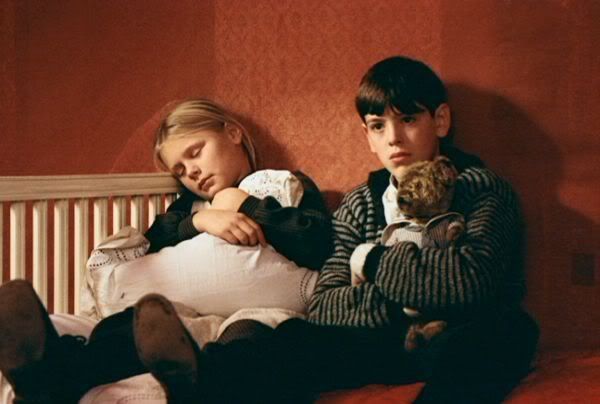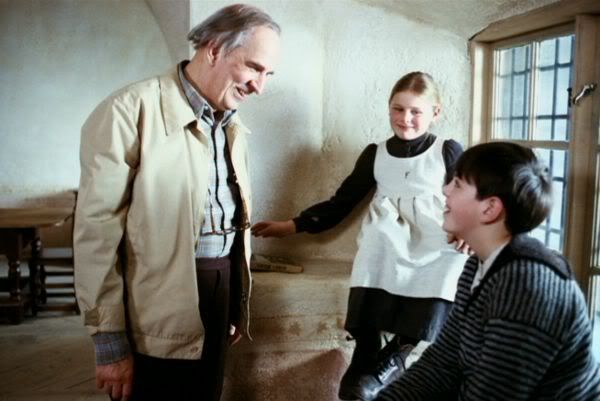
33-Fanny and Alexander. Director:Ingmar Bergman. Cast:Pernilla Allwin,Bertil Guve,Jarl Kulle,Mona Malm,Gun Wållgren,Börje Ahlstedt and Jan Malmsjö.(and etc...)
"There are fairy-tale elements here, but "Fanny and Alexander" is above all the story of what Alexander understands is really happening. If magic is real, if ghosts can walk, so be it. Bergman has often allowed the supernatural into his films. In another sense, the events in "Fanny and Alexander" may be seen through the prism of the children's memories, so that half-understood and half-forgotten events have been reconstructed into a new fable that explains their lives.
What's certain is that Bergman somehow glides beyond the mere telling of his story into a kind of hypnotic series of events that have the clarity and fascination of dreams. Rarely have I felt so strongly during a movie that my mind had been shifted into a different kind of reality. The scenes at night in the Jacobi house are as intriguing and mysterious as any I have seen, quiet and dreamy, and then disturbing when the mad Ismael calmly and sweetly shows Alexander how everything will be resolved.
The movie is astonishingly beautiful. The cinematography is by Bergman's longtime collaborator Sven Nykvist, who surrounds the Ekdahls with color and warmth, and bleeds all of the life out of the bishop's household.
The enormous cast centers on Helena, the grandmother, played by Gunn Wallgren (in a role once intended for Ingrid Bergman). Wallgren is full-lipped, warm and sexy, and her affection for Isak is life-giving; she was the best thing in the film, Bergman believed.
At the end, I was subdued and yet exhilarated; something had happened to me that was outside language, that was spiritual, that incorporated Bergman's mysticism; one of his characters suggests that our lives flow into each other's, that even a pebble is an idea of God, that there is a level just out of view where everything really happens."
-Roger Ebert-
------
"I believe that the film—or whatever it is—consists of this poem: a human being dies but, as in a nightmare, gets stuck halfway through and pleads for tenderness, mercy, deliverance, something. Two other human beings are there, and their actions, their thoughts are in relation to the dead, not-dead, dead. The third person saves her by gently rocking, so she can find peace, by going with her part of the way."
-Ingmar Bergman-



0 Comments:
Post a Comment
<< Home